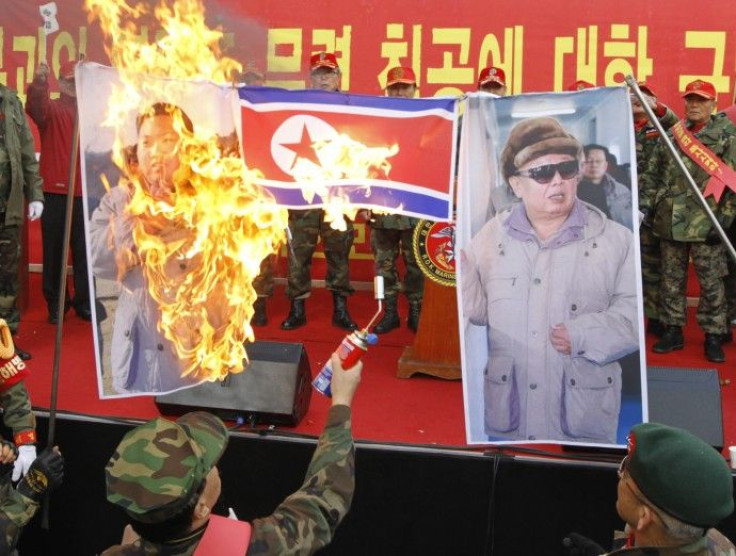By all odds...
North Korea's fire power and military might foil South's attempts to tame the communist regime

It was an emotional farewell in the South Korean city of Seongnam on Saturday. Thousands of people gathered to mourn the loss of two of their soldiers in last Tuesday's North Korea attack. The men from the army then took to the streets blaming the government of not doing enough to contain the looming threat from the North.
Some vowed a payback to North Korea by a 100 times. But even as South's armed forces prepare for a drill with the United States military on Sunday, analysts are wary of its odds to intimidate the North.
Unites States' George Washington, which has 70 fighter jets and an operational reach of almost 1,000 kilometers, will be sailing to the Yellow China Sea. International observers maintain that the U.S. presence and its intervention in the affairs of the Asia Pacific region would manifestly escalate the tensions.
The continent's economic giant China, had already expressed concern over the exercise, arguing that it could aggravate the situation and in fact provoke the North. Beijing in its calculated response to the exercise hinted that the U.S. will be solely held responsible for any outcome of the simmering tensions.
Meanwhile, editorials in international media have opined that any military action against North Korea would be similar to poking a feral dog with a stick. With limited fire power and half the cadres, the South is likely to be vigorously overwhelmed by Kim's kinfolk in a war that's seems almost inevitable.
Despite battling the limited computer and electronic supplies and chronic sanctions of the West, North Korea is believed to have one of the largest armies in the world. It has an estimated active duty military force of up to 1.2 million personnel, compared to about 680,000 in the South, the latest figures from the U.S. Department of State suggest. According to a recent report by the International Institute for Strategic Studies (IISS), North's forces are divided into 950,000 Army, 46,000 Navy, 110,000 Air and 189,000 Paramilitary units.
Spending more than 25 per cent of its Gross National Product (GNP), the state has reportedly developed notably, one of the largest special operations forces in the Asia Pacific region. Adding strength to the forces is its accessibility to road-mobile ballistic missiles with a projected range of 3,000 to 4,000 kilometers and reportedly the latest versions of the No-dong ballistic missile. Naval forces of the South also face peril of being overpowered by the North, which has an estimated 700 units and close to 70 submarines.
Torpedoes of various capabilities with a net explosive weight of about 200 to 300 kg, can also deliver an incomparable level of damage. The ROKS Cheonan, a Pohang class South Korean Patrol Combat Corvette patrolling in waters of the Yellow Sea was sunk on March 28 allegedly by a North Korean torpedo. Pyongyang, however, denied involvement in the Cheonan's sinking which claimed 46 lives.
North Korean army has more than 10,000 artillery pieces, and it would be logical to assume that artillery batteries will have detailed coordinates of many South Korean and US installations, a report in the IISS said on Friday.
Meanwhile, the economic slump has had an impact on the South's immediate defense plans. The government was earlier forced to scale back a proposed overhaul of its military posture, which was estimated at a budget of $563 billion by 2020. However, on Saturday, it projected a 5.8 per cent increase in next year's defense budget to about $27 billion to procure more self-propelled artillery and fighter-bombers.
But then there is the nuclear trump card. While the South displays an empty barrel, the North is boasting of at least 12 nuclear weapons in its arsenal all based on plutonium. With the display of thousands of centrifuges in the recent weeks, experts have also suggested that it is highly likely for Pyongyang to succeed in developing Hydrogen bombs rapidly. At a time when the North is desperate to complete the father-to-son power transition, there could be little reason for the communist regime not to deploy their full might and make a rolling statement.
To finish, Sunday's war drill is seen as a rather placid nudge and far from a word of warning to the North. It is also considered Washington's final retch before returning to the six-party talks, temporarily calling off the denuclearization process and offering perks in the forms of humanitarian aid, which the North desperately needs.
© Copyright IBTimes 2024. All rights reserved.











